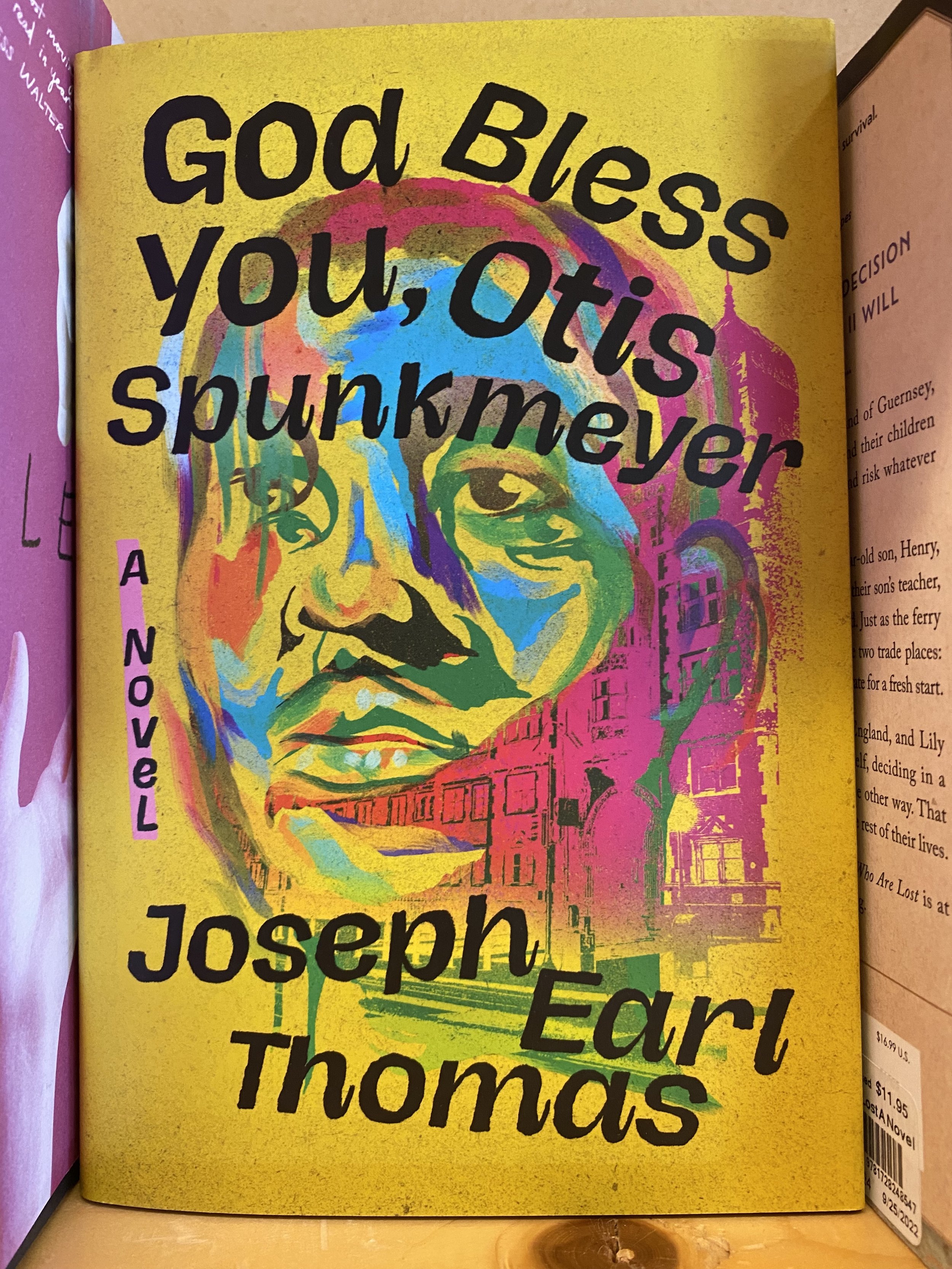3/5 stars
What's it about? Former army medic Joseph juggles doctoral work, family demands and worries, and the workplace drama of a fast-paced Philadelphia hospital in this stream of consciousness novel that follows Joseph through one seemingly neverending shift where people in his life are constantly showing up as patients. Can someone please get Joe some lunch?
How’d I find it? I have yet to read a review of a book as sparkling as this one in Kirkus Reviews and requested a copy immediately.
Who will enjoy this book? Though Thomas showcases a style all his own, similar themes and approaches to humor can be found in Jamel Brinkley’s A Lucky Man and in Bryan Washington’s work.
What stood out? Thomas’s debut novel feels contemporary in a way so few novels do: the language, the disillusionment with military service, the way systemic racism infects who and how people are treated in our healthcare system, and the complexities of American family life. It’s all there, though God Bless You, Otis Spunkmeyer is more snapshot than investigation. I could read a whole book just about Joe’s relationship with his mother or his best friend Ray. While jarring, the dips in and out of Joseph’s present align with breaks in his train of thought and maintain the lightning pace set on the first page. The hospital setting didn’t read wholly authentic to me, but I’m a nurse in Portland, Oregon and recognize that things may work differently in Philly.
Which line made me feel something? If this gorgeous sentence doesn’t draw you in, nothing will: “Folks online always thought he was older, though I could never see what they saw, his text always sounding the way he looked as a baby, his avatar, an older black woman with white locs exemplifying the too-familiar and impossible amalgam of mother and lover most of us longed for, coaxing it out of the women in our sphere or otherwise overrepresenting our imaginations as reality, a consequence of our unfinished forebears and that necessary love, that forceful love, that elegant and deeply painful love otherwise foreclosed to us by the world.”
